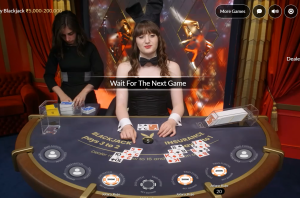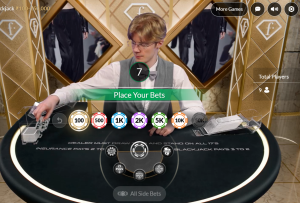Black jack is one of the most iconic and enduring games in the world of gambling. Loved by casual players and professional gamblers alike, it offers a perfect blend of simplicity, strategy, and suspense. Known for its straightforward rules and fast-paced nature, blackjack has been a casino favorite for centuries, attracting millions of players both in physical casinos and online gaming platforms.
In this guide from 91 club, we’ll explore the history, rules, strategies, and modern developments of black jack to help you understand why this game has stood the test of time.

About Black Jack
Black jack’s origins can be traced back to French casinos in the early 1700s, where it was known as “Vingt-et-Un” (meaning twenty-one). The game eventually made its way to North America, where it evolved into the version we know today. The term “blackjack” emerged in the United States when casinos offered a special bonus payout if a player’s hand contained the Ace of Spades and a black Jack (either the Jack of Clubs or the Jack of Spades). Although the bonus no longer exists, the name remained and became a global standard.
How to Play Black Jack
The goal of black jack is simple: beat the dealer’s hand without going over 21. Each card has a value:
- Cards from 2 to 10 are worth their face value.
- Kings, Queens, and Jacks are worth 10 points each.
- Aces can be worth either 1 or 11 points, depending on what benefits your hand the most.
The Basic Flow of a BlackJack Game:
Initial Deal
At the start of a black jack round, each player at the table—including the dealer—receives two cards. In most variations, players’ cards are dealt face up so everyone can see their own hand clearly. The dealer, however, has one card face up (known as the “upcard”) and one card face down (called the “hole card”). This hidden card adds suspense to the game because players must make their decisions without knowing the dealer’s full hand.
Player Decisions
Once the initial cards are dealt, the action begins. Each player has several options:
- Hit – Request an additional card to try to get closer to 21.
- Stand – Keep your current total and end your turn.
- Double Down – Double your original bet and receive exactly one more card before standing.
- Split – If your first two cards have the same value, you can split them into two separate hands, each with its own bet.
The goal in this stage is to make the best choice based on your own cards and the dealer’s visible upcard.
Dealer’s Turn
After all players have acted, the dealer reveals their hidden hole card. The dealer then draws additional cards according to strict rules—typically, they must hit until reaching at least 17. The dealer cannot make strategic choices; their moves are dictated entirely by the casino’s set guidelines.
Determining the Outcome
Once the dealer’s turn is complete, the results are determined:
- If your hand value is closer to 21 than the dealer’s, you win and are paid accordingly.
- If the dealer’s total is higher without going over 21, you lose your bet.
- If the dealer busts (goes over 21), all remaining players win automatically.
- If your total is the same as the dealer’s, it’s considered a “push,” and your bet is returned.
This simple yet strategic process is what makes black jack one of the most engaging and enduring games in the casino world.

Why Black Jack Is Different from Other Casino Games
Unlike many casino games that rely purely on luck, black jack incorporates a level of skill and decision-making. The actions you take during the game whether to hit, stand, double down, or split can influence the outcome. This is why experienced players often study blackjack strategy charts to improve their chances.
The game’s low house edge, when played correctly, also makes it appealing. In some variations, the house edge can be as low as 0.5%, making it one of the most player-friendly casino games available.
Key Strategies to Improve Your Black Jack Game
The Rise of Online Black Jack
The digital era has transformed black jack into an even more accessible game. Online casinos now offer a variety of formats, from standard software-based games to live dealer blackjack, which streams a real dealer via high-definition video. This brings the social and immersive aspects of traditional casinos directly to players at home.
Mobile gaming has also played a huge role in game growth. With smartphones and tablets, players can enjoy quick sessions anywhere, whether they have a few minutes to spare or want to play for hours.
Popular Variations of game
While the classic version remains the most played, there are several exciting variations of black jack, each with unique twists:
- European BlackJack – The dealer only receives one card initially and draws the second after players act.
- Pontoon – A British version with slightly different terminology and rules.
- Spanish 21 – Removes the 10 cards from the deck but offers additional player-friendly bonuses.
- Double Exposure – Both dealer cards are dealt face up, changing the strategy significantly.
Why Black Jack Remains Timeless
The enduring popularity of black jack can be credited to its perfect combination of luck, strategy, and quick gameplay. It’s a game where beginners can have fun within minutes, but also one that rewards those who take the time to learn advanced tactics. Whether played in glamorous Las Vegas casinos, friendly home games, or modern online platforms, blackjack continues to captivate players with its simple rules and thrilling possibilities.
